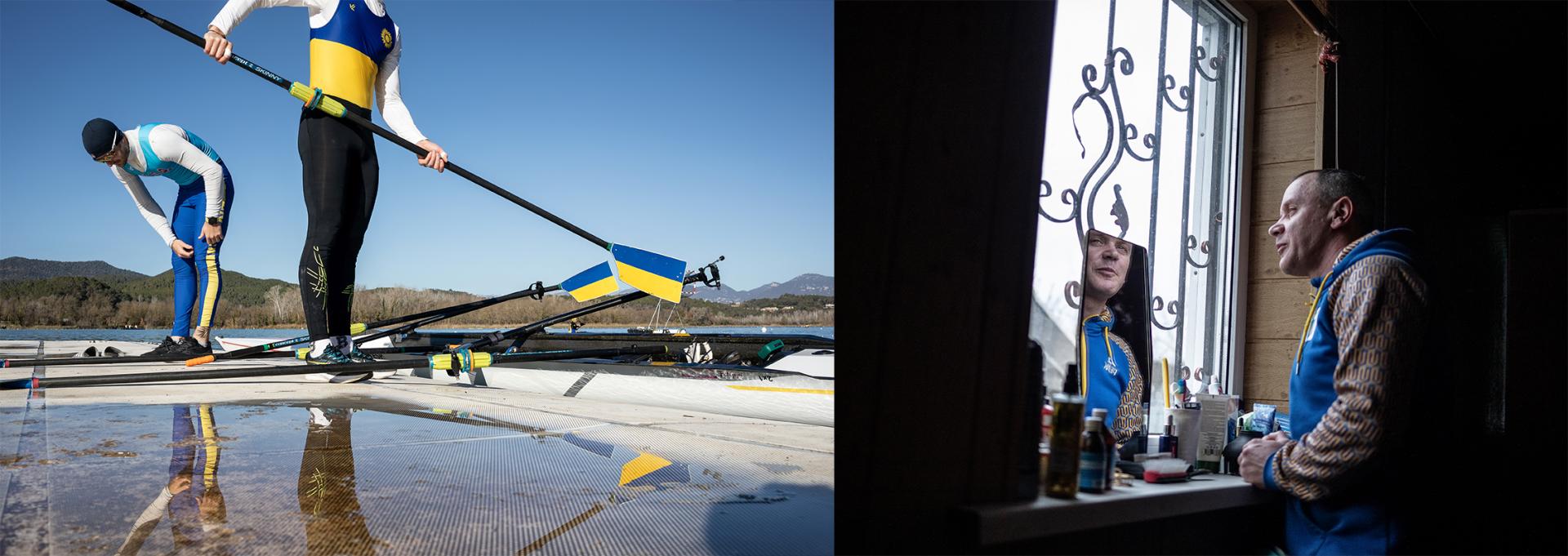The 2024 Paris Olympics, beginning July 26, are the first Olympic games since the outbreak of the war in Ukraine. Athletes at the Koncha-Zaspa Olympic Center in Kiev, along with their compatriots training outside of Ukraine, know that this international competition provides an important occasion to draw attention to Russia’s invasion and Ukraine’s resilience. Because of this, the Ukrainian government has taken pains to maintain its aid, scholarships, and travel permits for athletes throughout the war.
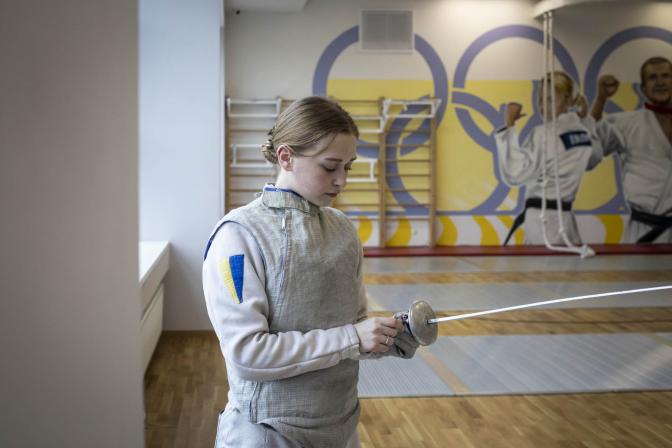
But no corner of life is insulated from the conflict with Russia. The Ministry of Youth and Sports of Ukraine estimates that more than four hundred athletes, coaches, and judges have lost their lives since the beginning of the war, and more than 350 sports facilities have been damaged by Russia’s bombs. Some athletes have left the country to train elsewhere in Europe, but many have returned, some living at Koncha-Zaspa. Others have been wounded in combat and will compete in the international Invictus games for disabled veterans. All balance the concern they feel for their homes and loved ones with the intensity of their training. As one Olympic boxer explains, the Olympics are “an opportunity for me to show the world that we are strong, that they shouldn’t forget about us, that they need to help us get through this.”
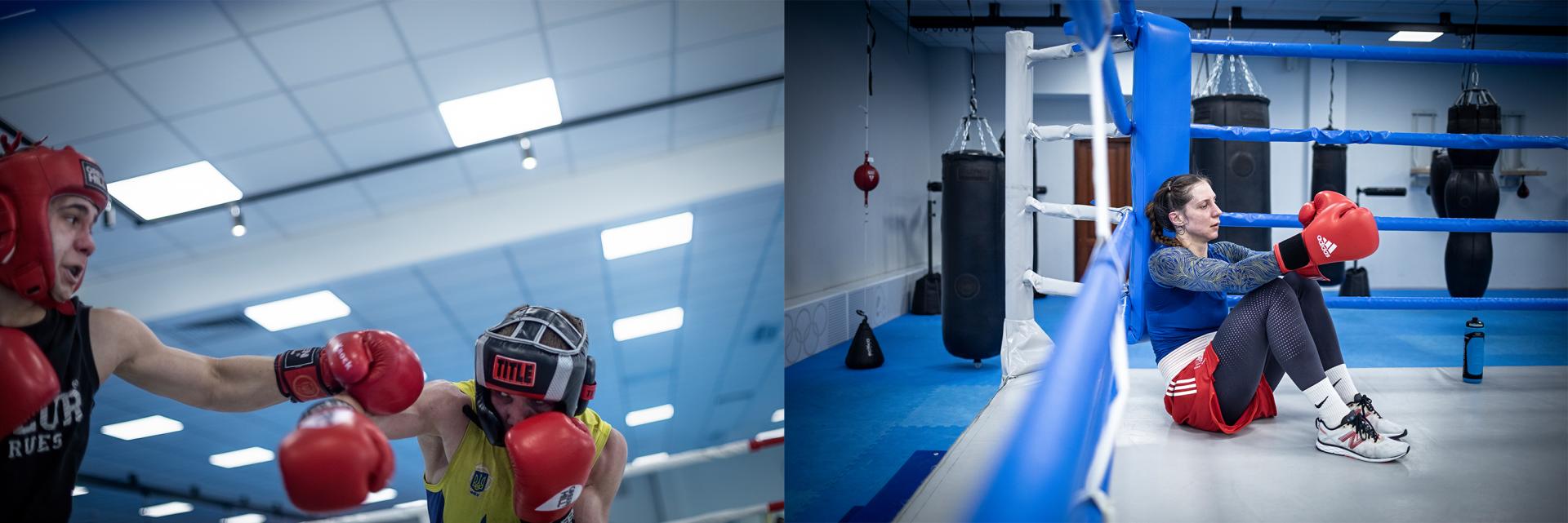
Above, left: One boxer from Lviv describes the challenges of preparing for the Olympics in a war zone: “There’s a lot of pressure because you know that your friends are fighting in difficult places…. I also feel that we are a motivation for our soldiers, sending them the message that we are not broken by the Russians.”
Above, right: Boxer Mariia Bova prepares for a qualifying tournament, which was held in Milan in March.
Below left: Repairing the hundreds of damaged sports facilities requires an estimated $268 million. Because the Ukrainian government prioritizes essential housing and communication reconstruction, most bombed sports spaces remain unrepaired.
Below, right: Players practice in a damaged soccer facility in Irpin, in the Kiev Oblast region.
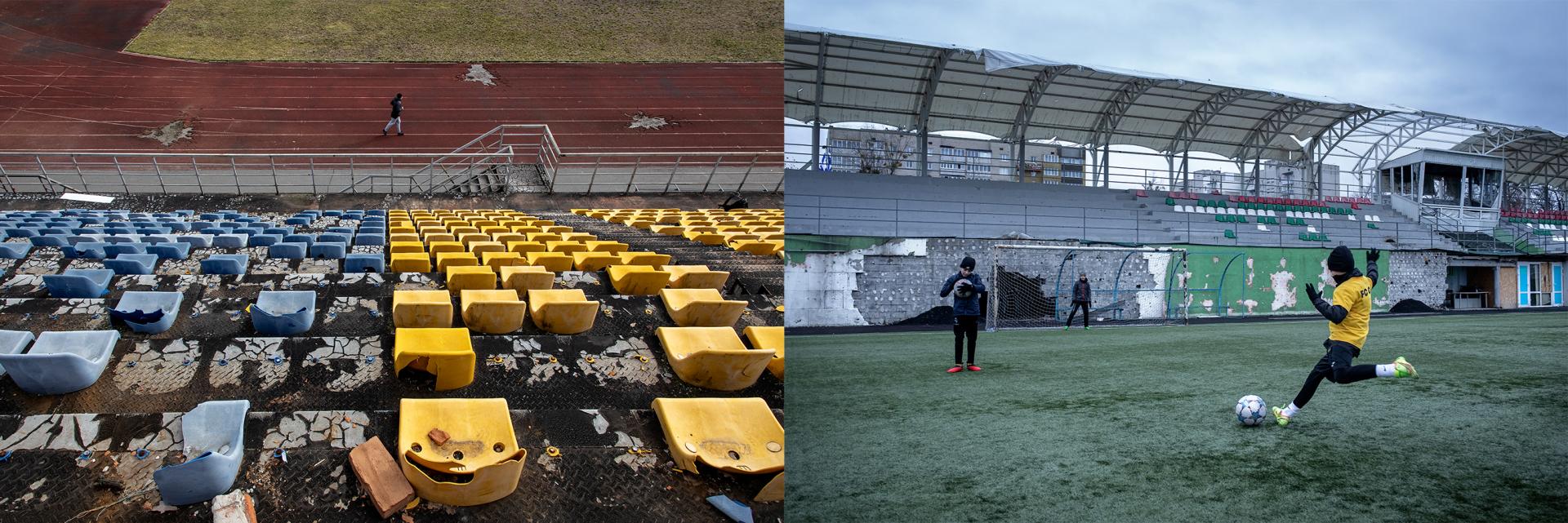
Below: Anastasiia Superson, who competes in judo, passes through three military checkpoints on her way to the gym, where she trains six days a week. When the war began, she was able to continue her training in Valencia, Spain, but eventually she returned to the outskirts of Kiev, where she can “handle the pressure of the war better.” As she explains, “In Spain, I was always worried about my family… that something might happen to them without me knowing. Being here gives me more tranquility, stability…. Despite the alarms, for me, calmness is being here.”

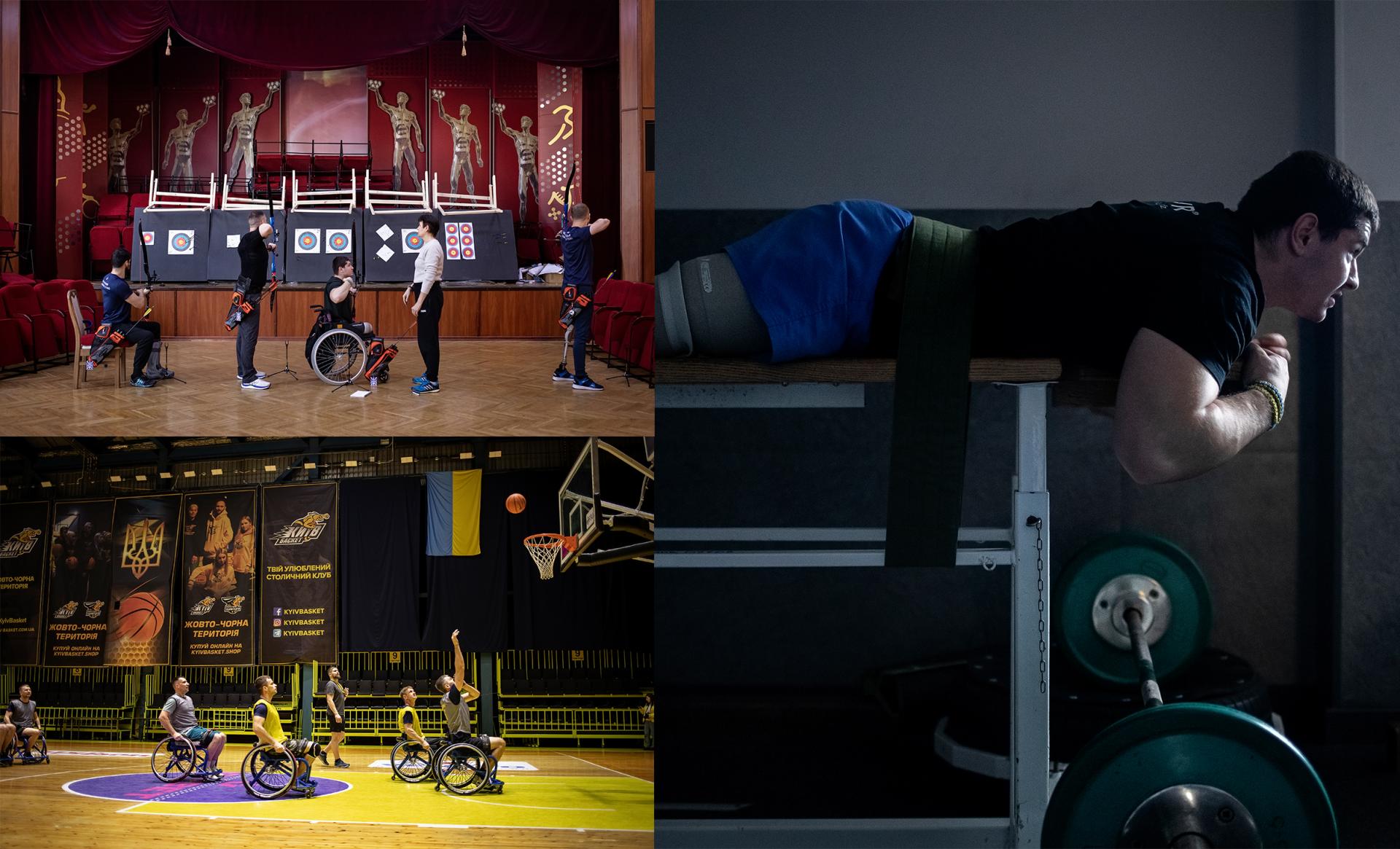
Above, right: Vadym Hilchuk lost both legs on September 19, 2023, in a mortar attack near Bakhmut. His comrades saved his life, and after surviving the evacuation and a four-day coma, he began training to recover. Once he heard about the Paralympian community, he immediately pursued archery, wheelchair volleyball, and indoor rowing.
Above, left: Athletes train for archery and for basketball in the Invictus Games. The wheelchair basketball team was invited to compete in the United States Air Force and Marine Corps Trials, an adaptive-sports competition hosted this spring in Las Vegas.
Below, left: The Ukrainian rowing team trained in Banyolas, Spain, between January and April 2024. Idyllic Lake Banyolas offered an escape from the Ukrainian winter and the pressure of training under daily air alerts. While in Spain, the athletes live glued to their mobile phones, looking for updates in their Telegram app groups, where they remain in constant contact with their families in Ukraine.
Below, right: Alexander Boholutskiv is the coach of the national Under-23 rowing team, living in a colleague’s half-built house outside Kiev.
